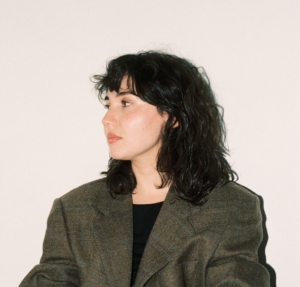Paula Leu Fernández Álvarez est chercheuse en doctorat au département d’histoire de l’art de l’université Complutense de Madrid (Espagne), avec le soutien du ministère des universités du gouvernement espagnol. Ses recherches portent sur la visualité de l’architecture industrielle moderne, l’urbanisme et le paysage à partir d’approches spatiales et objectives, en particulier dans l’étude de la performativité des paysages de ruines post-industriels. Elle est titulaire d’une licence en histoire de l’art de l’université Complutense de Madrid, avec une mention extraordinaire, d’un master en histoire de l’art contemporain et culture visuelle du musée national d’art Reina Sofia, de l’université Complutense et de l’université autonome de Madrid, et d’un niveau intermédiaire en musique du conservatoire professionnel de musique de la vallée de Nalón.
Elle est membre du groupe de recherche de l’université Complutense « Imaginaries. Processus culturels dans la contemporanéité occidentale » et a collaboré au projet de recherche “La ville juste : exclusion, appartenance et biens communs dans le cadre d’une approche urbaine des théories de la justice”. Auparavant, elle a été chercheuse Intro JAE à l’Institut de philosophie du Conseil national de la recherche espagnole (CSIC). Elle a effectué des séjours de formation à l’Institut des mouvements sociaux de l’université de la Ruhr à Bochum, à l’Institut d’histoire de l’art et d’archéologie de l’université de la Sorbonne à Paris et à la section des arts du spectacle et des arts intermédiaires du département des collections du musée national d’art Reina Sofia. Dans le domaine de la gestion culturelle, elle a documenté les collections d’arts du spectacle du département des collections du musée Reina Sofía, les collections de design contemporain du musée national des arts décoratifs, grâce à une bourse FormARTE en muséologie du ministère de la culture du gouvernement espagnol, et le patrimoine universitaire de l’unité de gestion du patrimoine historique de l’université Complutense.
LinkedIn : https://www.linkedin.com/in/paulaleu/
Site institutionnel : https://www.ucm.es/historiadelarte/paula-fernandez-alvarez
Site personnel : https://paulaleu.art/
ORCID: https://orcid.org/0000-0003-3746-3722





